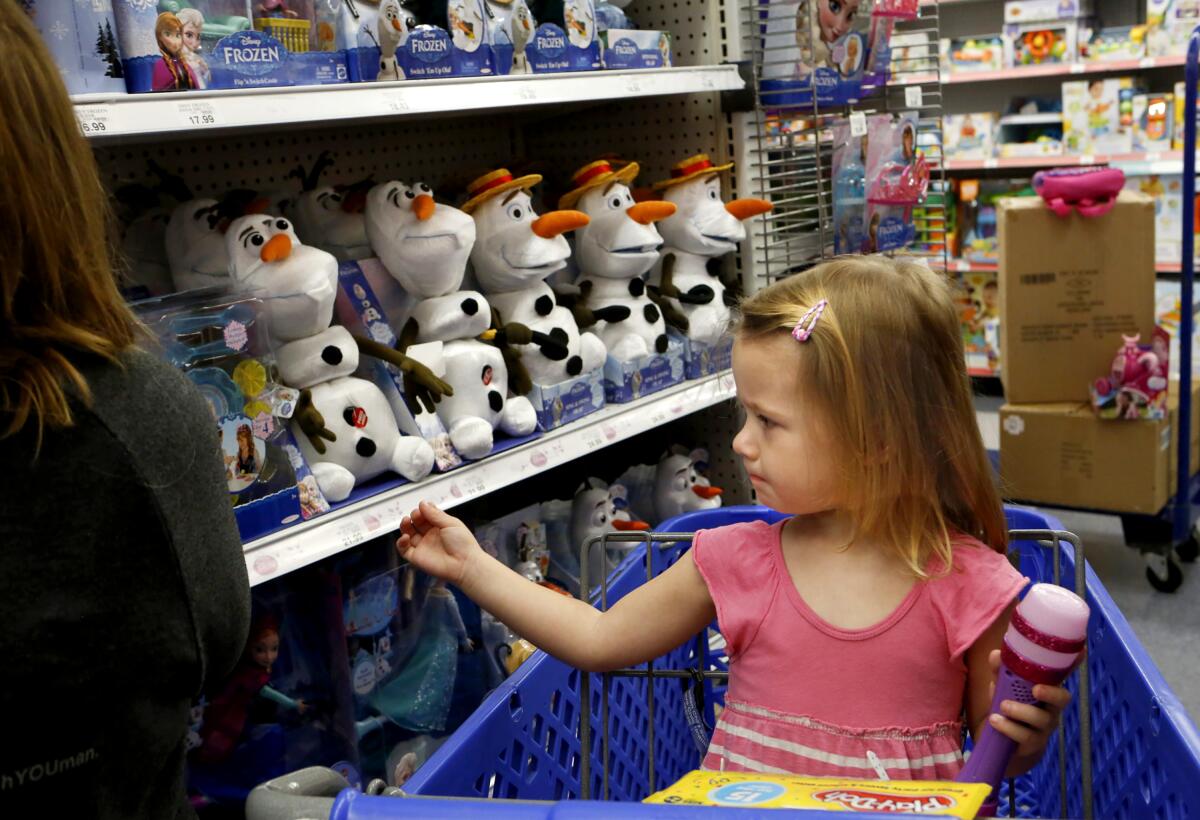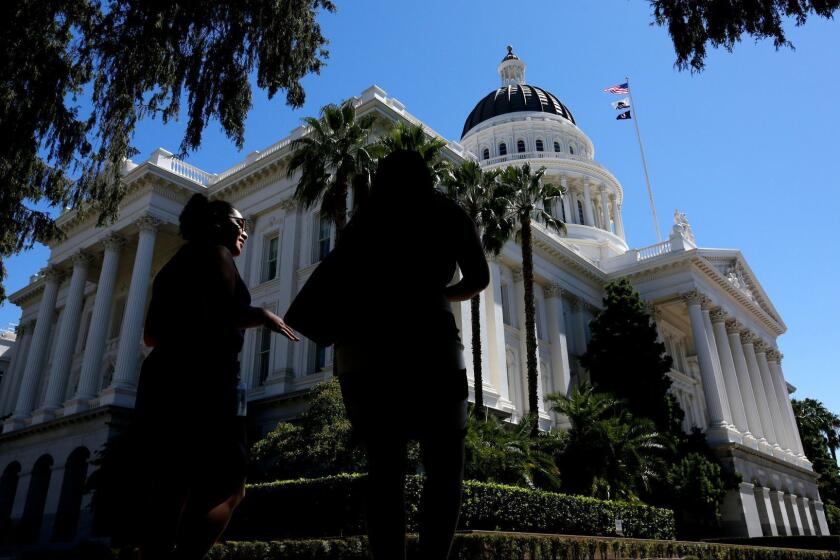Editorial: Here’s why California doesn’t need a bill requiring gender-neutral toy sections

State lawmakers have plenty of necessary and appropriate tasks ahead of them, such as preparing for a hotter, drier future, devoting adequate resources to fight and prevent devastating wildfires and supporting school districts as they help students overcome learning loss from the pandemic months.
Rearranging the toy shelves in major retail chains is not one of those tasks.
Nevertheless, a bill awaiting Gov. Gavin Newsom’s signature or veto would require stores or chains with more than 500 employees statewide to create gender-neutral toy sections, in which playthings traditionally associated with girls and with boys are commingled on the shelves. The stores could maintain separate sections for toys targeted to each gender, but only if they added a gender-neutral section as well. The bill, AB 1084, would require the same of childcare products such as pacifiers.
To be clear, it’s a great idea for stores to create toy sections where boys don’t feel odd for choosing a baby doll and girls feel welcome to take home a toy truck. A few big-box retailers, including Target, already have done away with signs and other visual markers that certain toys are for girls and others for boys. Toys R Us no longer labels toys as being for boys or girls.
A bill in the California Legislature would require large department stores to stop divvying up toys and child-care items into gender-based sections.
But even when stores don’t specifically label toys, the sea of pink and lavender on some toy aisles delivers an unspoken yet loud “girl” message while the blue tones of others signal boys. In catalogs of educational toys, girls are generally pictured with jewelry-making kits while boys are shown with construction sets and science kits, a disappointing throwback. And though of course a child can choose, it can be a powerful force of discouragement when a girl is trying to shop for a Superman costume for Halloween in an aisle where she’s surrounded by boys, while a boy hunts the pink row for a cat costume.
Still, the movement is mostly away from rigidly gendered toys to a more universal approach. Toymaker Hasbro, which earlier this year removed the “Mr.” from the brand name of its Potato Head line, is a pioneer in the movement. Neither families nor toymakers nor stores need the state’s intervention to make this happen; demand is already beginning to rearrange the landscape.
Even if it weren’t, though, the bill represents nannyish overreach. Just because something might be a good idea doesn’t mean it makes for good legislation. How private companies choose to arrange a display of toys or any other products is simply not government business.
As small as the reach of this bill would be, the concept it represents is of major concern: another inch in the Legislature’s mission creep from public policymaker to private overseer. We saw it with the 2018 California law — now being challenged in court — that requires corporations to include women on their board of directors. In 2020, the Legislature compounded the overreach by requiring corporate boards to add people of color too. Again, the goal is noble. The boards of publicly held companies were overwhelmingly white and male, and some studies show that corporate diversity is good for business. But if the companies are going to be dodos about it, that’s really their business.
When it comes to social engineering, public agencies should feel free to encourage more solar roof panels using tax benefits, surround kids with gender-neutral toys in public school kindergarten classes and provide public colleges with the financial resources to allow more low-income students to access higher education.
Now that the Mr. Potato Head controversy is behind us, get ready for the California Legislature’s effort to make ‘boys’ and ‘girls’ toy sections illegal.
That public role extends to the private sector when it comes to preventing employee abuse by setting standards for safe working conditions and hour and wage regulations, and protecting consumers with product safety laws. The state also safeguards the civil rights of transgender people by ensuring their right to use the restroom of the sex with which they identify, including in private stores and restaurants.
But progressive lawmakers need to check this trend toward interfering in seemingly every aspect of private commerce. They already appear aware that they cannot restrict how toys are labeled because that might cross the line into federally protected speech. But it shouldn’t take the U.S. Constitution to keep the Legislature — or Newsom — from regulatory overreach.
The governor should veto the bill and, in the future, legislators should ask themselves whether their personal values should trump those of private companies and consumers who are able to make their own decisions.
More to Read
A cure for the common opinion
Get thought-provoking perspectives with our weekly newsletter.
You may occasionally receive promotional content from the Los Angeles Times.












